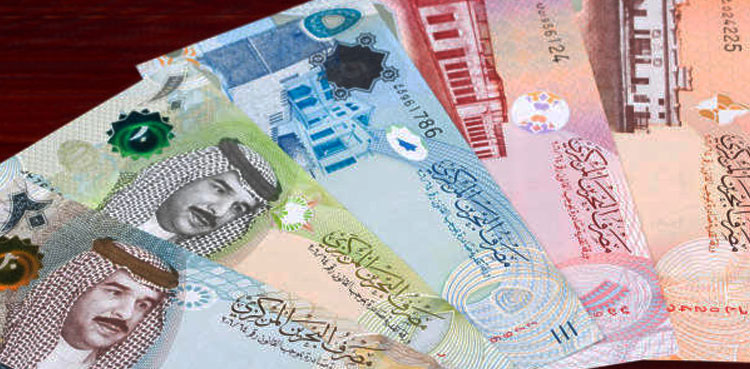Manama/Karachi- May 5, 2025: The Bahraini Dinar (BHD) currency continues to be firm against the Pakistani Rupee (PKR), with the latest rate being 1 BHD= 745.27 PKR.
This remains true despite shifting global currency marketplaces, depicts Bahrain’s economy with Pakistan’s outward sector restraint. Furthermore, Bahrain is mostly cushioned by the pegged exchange rate of its Dinar (1 BHD=2.65 USD) to the US dollar, which serves as anchor under flux.
In parallel, the managed float regime of the Pakistani Rupee assists in stabilizing their currency against other strong currencies.
1 Bahraini Dinar = 745.27 Pakistani Rupees
Causes Behind the Exchange Rate Stability
Various important factors explain the existing stability between the Dinar and Rupee. Strong economic fundamentals in Bahrain, along with its prudent fiscal management, are some of the main contributors to the Dinar’s stability. Contrary to this is the exchange rate of Pakistan that is determined by a mix of factors including the inflow of remittances, trade accounts, and SBP interventions. The actions by the SBP to stabilize currency, such as more stringent limits on forex deals and attempts at increasing reserves, have served to curb steep depreciation. Moreover, the continued inflow of remittances from Pakistani employees in Bahrain and other Gulf states is a consistent source of foreign exchange, contributing to the PKR’s further support.
Influence on Pakistani Expatriates in Bahrain
For the massive population of Pakistani expatriates employed in Bahrain, the stable exchange rate comes as a big relief. A stable Bahraini Dinar-to-PKR exchange rate ensures that their hard-earned remittances back home maintain their value so their families can more effectively cover household expenses in Pakistan’s inflationary context. Expat families predominantly live on such remittances for basic expenses like education, healthcare, and daily food needs. Significant changes to the exchange rate may disturb their financial planning. Hence, this stability will be especially valuable. In addition, a stable exchange rate minimizes the uncertainty that usually comes with international money transactions, stimulating more workers to remit money through formal means.
Impact on Bilateral Trade Between Pakistan and Bahrain
The stability in the BHD-PKR exchange rate is also beneficial to the trade relationship between Pakistan and Bahrain. Bahrain imports more commodities from Pakistan, such as textiles, agriculture products, and meat, whereas Pakistan imports petroleum products, aluminum, and machinery from Bahrain. A fixed exchange rate minimizes the currency risk for companies that participate in cross-border business, allowing more ease in negotiating contracts as well as long-term transactions. Both sets of traders enjoy the certainty, as unexpected currency fluctuations can shrink profit margins as well as supply chains are disrupted. With time, the stability can lead to greater economic interdependencies and trigger higher volumes of trade between the two countries.
A Brief Overview of the Bahraini Dinar and Pakistani Rupee
The Bahraini Dinar, since its creation in 1965, is among the most powerful currencies globally, due to the country’s robust financial industry and oil-based economy. Its US Dollar peg guarantees long-term stability, positioning it as a sound currency for both investment and trade. Conversely, the State Bank of Pakistan issues the Pakistani Rupee, which functions on a managed float regime with its value determined by market forces coupled with regulatory interventions. Whereas the PKR has been under pressure of depreciation in recent years owing to economic setbacks, it is still one of the major currencies in South Asia, upheld by remittances and export revenues.
Future Outlook
In the near term, the BHD-PKR exchange rate is expected to remain stable, barring any major economic disruptions in either country. For Pakistan, maintaining this stability will depend on continued inflows of remittances, prudent fiscal management, and potential improvements in export performance. Bahrain’s economic policies, particularly its commitment to the dollar peg, will also play a crucial role. While both countries are working their way through international economic instability, the stable exchange rate provides some sense of stability for expats, companies, and investors. Analysts will be keenly observing for any changes in monetary policy or foreign trade patterns that might impact the currency pair over the coming months.


Leave a Comment